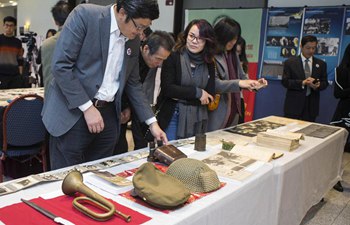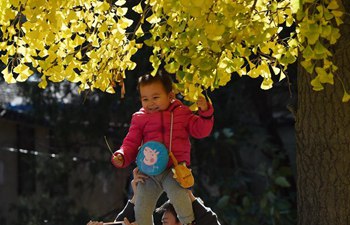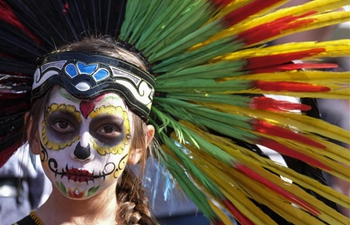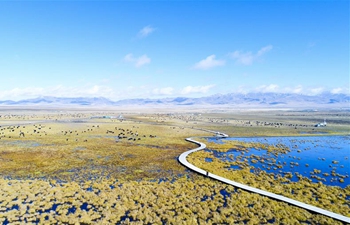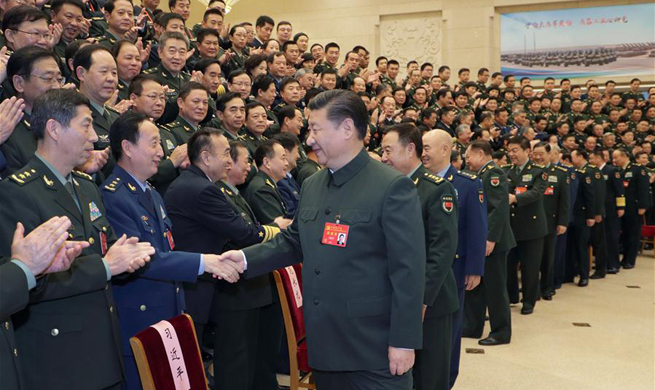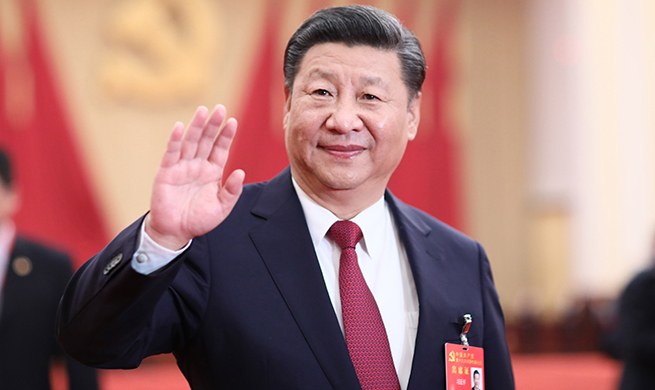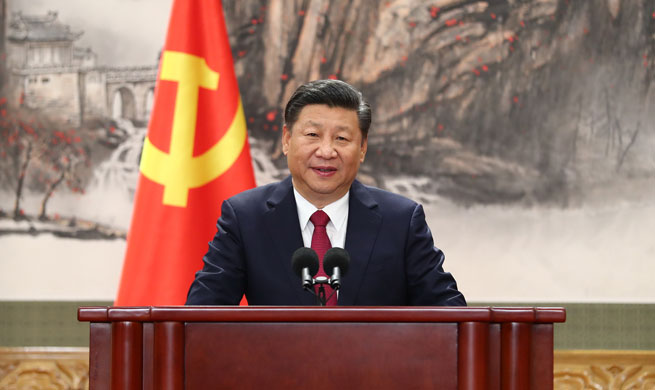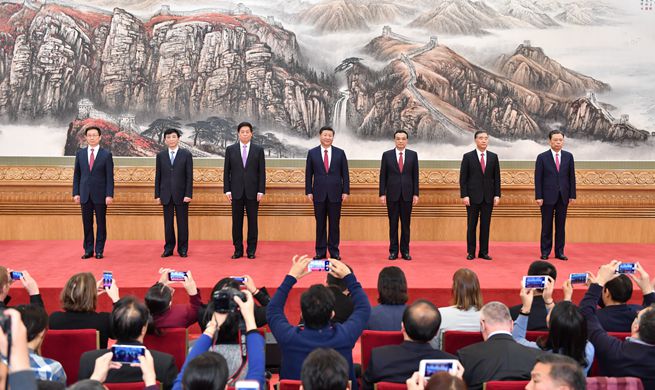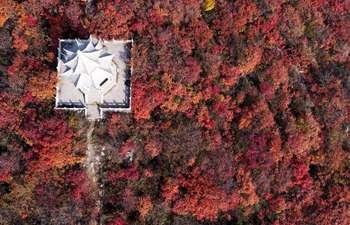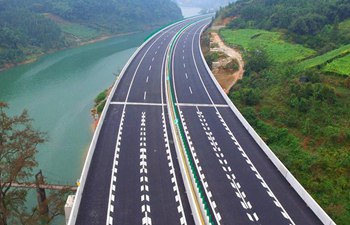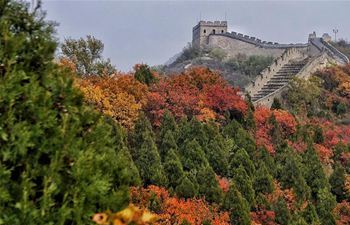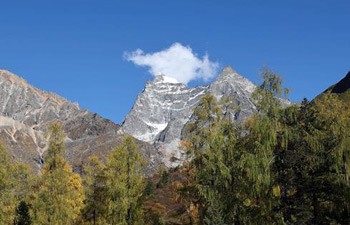By Liu Mei, Huang Heng
LOS ANGELES, Oct. 29 (Xinhua) -- For travel lovers, to hike entrance fee for those renowned U.S. national parks, is a reasonable plan, but some experts warned this move could price out minority and low-income Americans who also have rights to enjoy beauty of the land.
A proposal, which is now in a public comment period for 30 days, split Americans into two parts since from it was released by the National Park Service (NPS) last week.
According to the plan, 17 of the most popular U.S. national parks could see entrance fees for weeklong passes increase during peak season from around 25 to 30 U.S. dollars to 70 dollars for a single private vehicle.
Fees for others would also be increased to 50 dollars per motorcycle and 30 per person on bike or foot.
For now, of the 417 national park sites, 118 charge fees, while the rest 299 are free. The proposal would increase the fees of 17 charging-fee parks, which are most popular and facing heavy burden from more and more tourists.
The proposal would affect the 17 national parks during the 2018 peak season: Joshua Tree, Arches, Bryce Canyon, Canyonlands, Denali, Glacier, Grand Canyon, Grand Teton, Olympic, Sequoia & Kings Canyon, Yellowstone, Yosemite, and Zion National Parks, Acadia, Mount Rainier, Rocky Mountain, and Shenandoah National Parks.
Peak pricing would affect each park's busiest five months for visitors.
Zion National Park in the state of Utah had the most visitors with 4 million for 2016, a record, and nearly 3 million people visited Glacier National Park in the state of Montana last year, another record, park officials told Xinhua earlier.
"The infrastructure of our national parks is aging and in need of renovation and restoration. We need to have the vision to look at the future of our parks and take the action in order to ensure that our grandkids' grandkids will have the same if not better experience than we have today," U.S. Secretary of the Interior Ryan Zinke said in a statement released with the proposal on Oct. 24.
The near doubling in park fees is expected to generate an additional 70 million dollars annually, which the NPS said would pay for the parks' neglected infrastructure.
Kammy Chiu, a California resident, is a hiking lover and has been to many national parks, supported the plan which could be implemented from May 1 next year if got an approval after a 30-day public comment period scheduled to be closed on Nov. 23.
"It's fine for me to pay 70 dollars to the national parks. If the extra fees can bring the visitors more enjoyment and better environment, it's worthy. I prefer to pay more to the national parks than to the amusement parks, like Disneyland or Universal Studios," Chiu told Xinhua on Friday.
In Fiscal Year 2016, the NPS collected more than 200 million dollars entrance fees. Under the Federal Lands Recreation Enhancement Act, 80 percent of an entrance fee remains in the park where it is collected. The other 20 percent is spent on projects in other national parks.
Moreover, 2016 NPS Visitor Spending Effects Report noted that in 2016 alone, park visitors contributed about 18.4 billion dollars to the economic regions surrounding parks.
But not all sides could benefit from the more expensive trip.
"For families that want to get out to parks, that cost barrier is not just perceived, and it disproportionately affects families of color," said Gabe Vasquez, a coordinator for Latino Outdoors, a group that helps Latino communities get outside. "People can't afford 25 dollars every time they want to go hiking."
"Over 30 of our monuments are under the attack, so protecting our national parks and monuments is urgent for every of us. We do need more revenue to do the maintenance, but I think it needs the effort from both government and visitors," Robin Mann, the volunteer of Sierra club, which is an organization focuses on protecting the national monuments of America, told Xinhua Friday.
Some people insisted that national park is the nature of the world, which is should be free to people. Hiking entrance fee just contradicts the very reason the parks were established.
"I truly believe that our country's responsibility is to see to it that our parks are accessible to anyone at any time," Robert Hanna, the great-great-grandson of conservationist John Muir and a vocal advocate for national parks, told National Graphic magazine.
"National Parks are not created by human, they are natural. In my opinion, anyone can visit parks or see the scenery there. Even if charging money, it should be in the form of donation."
Alex Crohen, a California resident who loves traveling told Xinhua Friday, that he purchased the national parks season pass every year, which is also called America the Beautiful passes, about 80 dollars.
The proposal has yet not proposed any price increase for the season pass, which permits entrance into all federal lands and parks.





